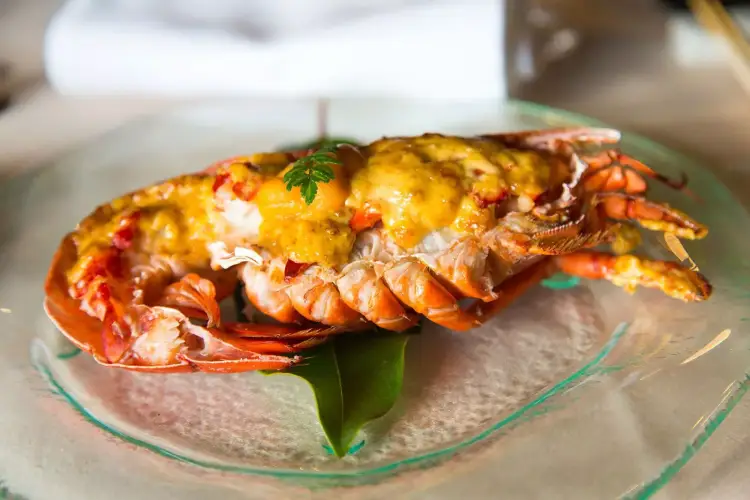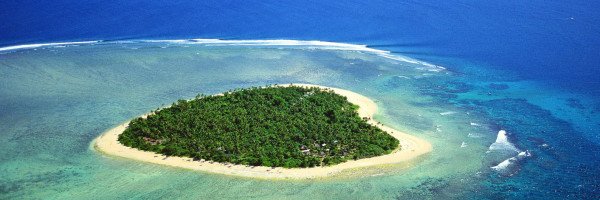The Historical Significance of Kava in Fijian Culture
Kava, a traditional beverage made from the root of the kava plant (Piper methysticum), has long been an integral part of Fijian culture. Its origins can be traced back over a thousand years, playing a pivotal role in many aspects of life in Fiji. Kava is not merely a drink; it is a symbol of hospitality, respect, and social connection. Traditionally, the preparation and consumption of kava have been steeped in rituals that emphasize its importance in Fijian society. In Fijian customs, kava is often prepared during ceremonies, such as welcoming guests, celebrating significant life events, or even during communal decision-making processes. During these occasions, the act of sharing kava fosters a sense of unity among participants. The preparation of kava itself is a ceremonial act, where the root is ground and mixed with water in a communal bowl called a “tanoa.” This process is often accompanied by traditional songs and chants, highlighting the deep cultural significance of kava. Understanding the historical context of kava provides insight into the social fabric of Fijian life. It serves as a reminder of the values of respect, community, and shared experiences that characterize Fijian cultural norms. For those in New Zealand looking to connect with Fijian culture, participating in a kava ceremony or learning about its history can enhance your appreciation of the traditions that shape modern Fijian identity. For more information about Fiji’s cultural heritage, visit Fiji Islands.Kava Ceremonies: Rituals and Etiquette
Kava ceremonies are rich in symbolism and etiquette, reflecting the values and cultural norms of Fijian society. These ceremonies often occur in a communal setting, where the preparation and sharing of kava serve as a means of bonding among participants. The rituals involved in a kava ceremony can vary, but they generally follow a common structure that emphasizes respect and community. When entering a kava ceremony, it is essential to adhere to specific etiquette. Participants are expected to remove their hats and sunglasses as a sign of respect. The ceremony typically begins with the chief or the designated host offering the first bowl of kava to the guests, demonstrating the hierarchical nature of Fijian society. Guests are encouraged to show gratitude by clapping once before drinking and again after finishing the bowl. In many ways, kava ceremonies serve as a social equalizer, where individuals from different social standings can come together and share in the experience. The act of consuming kava fosters a sense of belonging and camaraderie. For New Zealanders interested in Fijian customs, participating in a kava ceremony can be an eye-opening experience that highlights the importance of relationships and respect in Fijian culture. To learn more about Fiji’s unique traditions, check out Fiji Islands.The Role of Kava in Fijian Social Life
Kava plays a vital role in the social life of Fijians, serving as a medium for communication and interaction. It is not uncommon for kava to be consumed daily, especially in rural areas where social gatherings are a frequent occurrence. In these settings, kava acts as a lubricant for conversation and a facilitator of relationships, allowing individuals to share their thoughts and experiences in a relaxed atmosphere. The consumption of kava often marks significant life events such as weddings, funerals, and community meetings. During these gatherings, kava helps to solidify social bonds and reinforce communal ties. The sharing of kava acts as an invitation to engage in open dialogue, fostering a sense of trust and understanding among participants. For those in New Zealand, understanding the role of kava in Fijian social life can enrich your appreciation of the cultural norms that bind Fijian communities. By creating spaces for social interaction—whether through a kava gathering or simply learning about its significance—you can foster a deeper connection with the values of respect and community that are central to Fijian culture. Explore more about Fiji’s vibrant social customs at Fiji Islands.Kava and Spiritual Connections
In Fijian culture, kava is often associated with spiritual connections and is believed to facilitate communication with ancestors. Its consumption is not merely a social activity; it also serves a spiritual purpose, allowing participants to connect with their heritage and cultural identity. During specific ceremonies, kava may be offered to the spirits of ancestors as a sign of respect and remembrance. The spiritual dimension of kava consumption is particularly evident during traditional rituals, such as the “sevusevu,” where kava is presented to the chief or a community elder as a token of respect before any significant gathering. This act reinforces community bonds and acknowledges the importance of ancestry in Fijian culture. The preparation and presentation of kava during these ceremonies are often accompanied by prayers or incantations, further emphasizing its spiritual significance. For New Zealanders exploring Fijian traditions, understanding the spiritual connections associated with kava can provide valuable insights into the beliefs and values that shape Fijian cultural norms. Engaging with these traditions can foster a deeper appreciation for the role of spirituality in everyday life. To learn more about the spiritual aspects of Fijian culture, visit Fiji Islands.Kava as a Tool for Conflict Resolution
Kava has historically served as a tool for conflict resolution in Fijian society. The act of sharing kava can diffuse tensions and foster dialogue between conflicting parties. In many cases, disputes are settled over a bowl of kava, where participants engage in open conversation to address grievances and seek mutual understanding. The calming effects of kava are believed to contribute to a more peaceful atmosphere during these discussions. By partaking in the kava ceremony, individuals are reminded of the values of respect and community, which are essential for resolving conflicts amicably. This practice underscores the importance of communication and reconciliation in Fijian culture. For those in New Zealand, understanding the role of kava as a conflict resolution tool can offer valuable lessons in communication and relationship-building. By emphasizing dialogue and mutual respect, individuals can foster a more harmonious environment in their own communities. To explore more about the significance of kava in Fijian culture, check out Fiji Islands.Kava’s Influence on Fijian Identity and Global Recognition
Kava is not only a vital aspect of Fijian culture but has also gained global recognition as a beverage with a unique identity. The increasing interest in kava, particularly in wellness and social settings, has contributed to a growing awareness of Fijian traditions and cultural norms. As kava has become popular outside of Fiji, it serves as an ambassador of Fijian culture, inviting others to learn about and appreciate its significance. This global recognition has led to a resurgence of interest in traditional Fijian practices, including kava ceremonies. With more people seeking authentic cultural experiences, kava serves as a bridge between Fijian communities and the world. Its popularity has prompted discussions around responsible consumption and the preservation of cultural heritage. For New Zealanders, engaging with kava culture can provide an opportunity to connect with Fijian identity while promoting respect for its traditions. By participating in kava gatherings or learning about its cultural significance, individuals can contribute to the preservation and appreciation of Fijian customs. To further explore the global influence of kava and its role in Fijian identity, visit Fiji Islands.Kava in Modern Fijian Society
In contemporary Fijian society, kava continues to hold a significant place, adapting to modern influences while retaining its traditional roots. As Fiji becomes increasingly connected to the global community, the role of kava has evolved, reflecting changes in social dynamics and cultural practices. Today, kava is often enjoyed in various settings, from traditional ceremonies to casual social gatherings and even bars and restaurants. Despite these changes, the core values associated with kava remain intact. It continues to serve as a medium for social bonding and a means of honoring cultural heritage. The younger generation of Fijians is increasingly embracing kava while incorporating modern elements into its consumption. This blend of tradition and modernity creates a vibrant kava culture that is both relevant and accessible. For New Zealanders interested in modern Fijian culture, understanding the contemporary role of kava can provide insights into the evolving nature of cultural practices. Engaging with kava in a modern context can foster connections with Fijian traditions while also promoting appreciation for their ongoing significance. To learn more about the interplay between tradition and modernity in Fijian culture, explore Fiji Islands.FAQs
What is Kava and why is it significant in Fijian culture?
Kava is a traditional beverage made from the root of the kava plant, and it holds substantial significance in Fijian culture as a symbol of hospitality, community, and social bonding. It is often consumed during ceremonies and gatherings, reflecting Fiji’s cultural norms of respect and unity.
How is Kava prepared for ceremonies in Fiji?
The preparation of Kava involves grinding the root into a fine powder, which is then mixed with water to create a muddy, earthy drink. This process is often a communal activity, emphasizing the Fijian value of togetherness and collaboration during important rituals and celebrations.
What types of ceremonies involve Kava in Fijian traditions?
Kava is integral to various ceremonies in Fiji, including welcoming guests, weddings, and religious events. These ceremonies often feature the serving of Kava as a way to honor participants and reinforce social bonds, adhering to cultural norms that prioritize respect and hospitality.
Is there a specific way to drink Kava during these ceremonies?
Yes, drinking Kava in Fijian customs involves a specific protocol. Participants typically sit in a circle and take turns drinking from a communal bowl, using a half coconut shell. This ritual fosters a sense of equality and connection among participants, aligning with Fiji’s cultural emphasis on community and shared experiences.
What role does Kava play in social bonding among Fijians?
Kava serves as a social lubricant that facilitates conversations and strengthens relationships among individuals. Sharing Kava during gatherings fosters a sense of belonging and mutual respect, which is a cornerstone of Fijian cultural norms and emphasizes the importance of community ties.
Are there any health considerations associated with Kava consumption?
While Kava is celebrated for its relaxing effects, excessive consumption can lead to health issues, including liver damage. As with many aspects of Fijian culture, moderation and respect for traditions are key, and it is important for Fijians to balance enjoyment with awareness of the potential risks.
How has Kava’s role in Fijian traditions evolved over time?
Over time, the role of Kava in Fijian traditions has evolved, with its use expanding beyond traditional ceremonies to include modern social gatherings and even international events. However, it remains deeply rooted in cultural norms, serving as a bridge between the past and present, and continuing to symbolize unity and respect among Fijians.
References
- Fiji Islands Official Tourism Website – This site provides an overview of Fijian culture, including the significance of kava in traditional ceremonies and social gatherings.
- Kava: A Review of Its Effects on Health and Social Functioning – This academic article discusses the health benefits and social implications of kava consumption in Fijian culture.
- The Cultural Significance of Kava in Fiji – A research paper exploring the historical and cultural importance of kava in Fijian customs and social interactions.
- Kava and the Construction of Fijian Identity – This journal article analyzes how kava rituals contribute to the formation of Fijian identity and community bonds.
- What is Kava and Why is it Important to Fijian Culture? – An informative piece from ABC News that highlights the role of kava in Fijian society, including its use in ceremonies and social gatherings.







